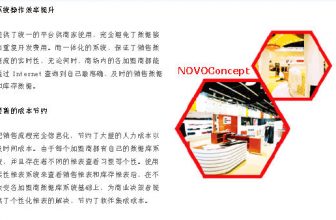
Brazilian shoe store Sapati uses RFID technology to double its sales
[ad_1]
Brazilian shoe store Sapati is using the RFID platform to enhance the consumer experience. At present, the system has completed its first year of operation, and store sales have also increased by 100%. The platform was developed under the leadership of Vanderlei Kichel, CEO of footwear ERP company SetaDigital.
According to Kichel, consumers are enjoying the RFID experience, which can simplify sales and make purchases within 1 minute.

Vanderlei Kichel, CEO of SetaDigital and founder of Sapati, stands next to a system that recognizes footwear and records the information on an RFID card to add an order to the virtual shopping cart
Kichel said that the marking of shoes is the biggest challenge Sapati faces. He explained: “Shoe factories need to put labels on shoes to shorten the work that needs to be done during sales. In addition, if labels are affixed to shoes during manufacturing, the RFID system can also track the production process or be used to prevent theft.”
The entrepreneur said that he is negotiating with companies in the shoe industry to deploy RFID in the factory, which will help control factory inventory.
Kichel said that several Digital Arrow customers who visited Sapati became interested in some solutions such as inventory control and eventually acquired Sapati technology. He pointed out: “Other technologies in the solution (such as augmented reality) when used in conjunction with RFID have also attracted the interest of customers.”
Omni-channel retail is another hot trend. Kichel said: “We have 40 customers using an omni-channel sales model, some of which are planning to use RFID to control inventory.”
Sapati is a laboratory for testing SetaDigital’s new technology, and all sales profits are reinvested in project development. Kichel said that Sapati solves the problem of customers not knowing what to buy.

The customer first touches the shoe to the RFID reader, and then writes the product into the card that acts as a virtual shopping cart.
Kichel explained: “With this store, we can evaluate the pain points of this industry, develop corresponding tools for testing, and continue to improve.” The company invests $1 million in innovation every year.
SetaDigital plans to invest US$462,000 to expand its services to other Latin American countries. SetaDigital focuses on the development and provision of software and services for shoe retailers, and has a history of 10 years. The company has provided services to 1,000 stores in Brazil.
[ad_2]






